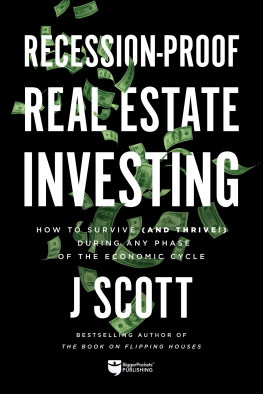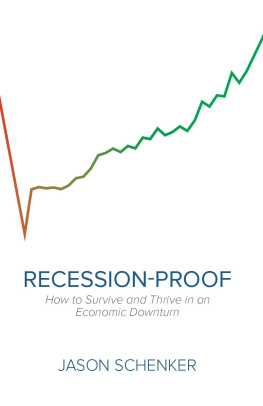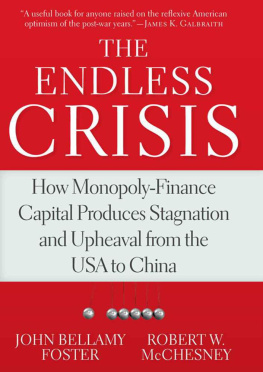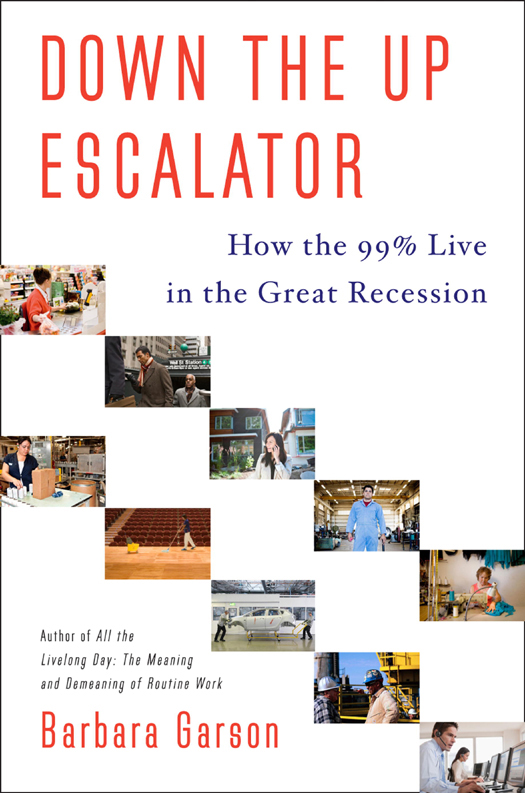
Copyright 2013 by Barbara Garson
All rights reserved. Published in the United States by Doubleday, a division of Random House, Inc., New York, and in Canada by Random House of Canada Limited, Toronto.
www.doubleday.com
DOUBLEDAY and the portrayal of an anchor with a dolphin are registered trademarks of Random House, Inc.
The Mystery of the Missing Unemployed Man was previously published in slightly different form on TomDispatch.com.
Jacket design by Emily Mahon Cashier totaling grocery purchases PhotoAlto/James Hardy/Getty Images; business people exiting Wall Street Station Fuse/Getty Images; woman on cell phone Blend Images/SuperStock; male factory worker Corbis/SuperStock; seamstress, Hispanic small business owner Bipolar/Getty Images; factory worker Blend Images/SuperStock; cleaning up a theater Pedro Castellano/Getty Images; auto factory worker Cultura/Limited/SuperStock; petroleum workers Corbis/SuperStock; Hispanic businessman working on computer JGI/Tom Grill/Getty Images
Library of Congress Cataloging-in-Publication Data
Garson, Barbara.
Down the up escalator : how the percent live in the Great Recession / Barbara Garson.
p. cm.
. Income distributionUnited StatesHistoryst century.
. EqualityUnited StatesHistoryst century.
. Global Financial Crisis, 20082009 . I. Title.
HC110.15G376 2013
339.2 20973 dc
2012020359
eISBN: 978-0-385-53275-4
v3.1
CONTENTS
Introduction: What Caused the Great Recession
(in Three Scenes and One Phone Call)
AUTHORS NOTE
In order to protect the identities of most of the people I interviewed for this book, I did not use their real names. Money is such a sensitive subject that I eventually changed all names except for a couple of people who spoke in their official capacities and one media-savvy fellow whose own blog reveals far more intimate things about him than I do here. I also changed the location of a small town, and I regretfully concealed a few corporate names that it would have been fun to mention. Despite these bits of camouflage, none of the people youre about to meet are composites. Theyre individuals speaking in their own words.
INTRODUCTION
What Caused the Great Recession (in Three Scenes and One Phone Call)
I met a man about forty years ago and caught up with him on three more occasions. These four scenes, spanning four decades of his life, should have been enough for me to predict the Great Recession. But I didnt put it together till now.
SCENE I
In the late 1960s I worked at a coffeehouse near an army base from which soldiers shipped out to Vietnam. A lot of the GIs who frequented our place were putting out antiwar newspapers and planning demonstrationsone group was even organizing a union inside the army.
But I often sat with a young man back from Vietnam who was simply waiting out the time till his discharge. Duane had floppy brown hair, lively eyes, a sweet smile, and was slightly bucktoothed. He was handy and would fix our record player or show up with a part that made our old mimeograph machine run more smoothly.
He rarely spoke about the war except to say that his company stayed stoned the whole time. Our motto was Lets not and say we did. Me and this other guy painted that on a big banner. It stayed up for a whole day, he noted with a mix of sardonic and genuine pride.
That was the extent of Duanes antiwar activism. He didnt intend to become a professional Vietnam vet like John Kerry. His plan was to return to Cleveland and make up for time missed in the civilian counterculture.
I enjoyed my breaks with Duane because of his warm, self-aware humor, but thousands of GIs passed through the coffeehouse, and I didnt particularly notice when he left.
SCENE II
In the early 1970s General Motors set up the fastest auto assembly line in the world in Lordstown, Ohio, and staffed it with workers whose average age was twenty-four.
The management hoped that these healthy, young, and inexperienced workers would handle 101 cars an hour without balking the way longtime autoworkers surely would have. But the pace and monotony were just as oppressive to the younger workers. What GM got at Lordstown instead of balkiness, however, was a series of slowdowns and snafus aimed at the speed of the line. The management publicized this as systematic sabotageuntil it realized that that could hurt car sales.
I visited Lordstown the week before a strike vote, amid national speculation about the generation of hippie autoworkers whose talk about humanizing the assembly line was supposed to change forever the way America works.
On a guided tour of the plant (how else could I get inside?), I spotted Duane shooting radios into cars with an air gun. We recognized each other, but in the regimented factory environment we both instinctively thought it better not to let on. In lieu of a greeting, Duane slipped me a note with his phone number. At home that evening he summarized life since his discharge.
Remember you guys gave me a giant banana split the day I ETSed [got out as scheduled]. Well, its been downhill since then. I came back to Cleveland, stayed with my dad, who was unemployed. Man, was that ever a downer. But I figured things would pick up if I got wheels, so I got a car. But it turned out the car wasnt human and that was a problem. So I figured, What I need is a girl. But it turned out the girl was human and that was a problem. So I wound up working at GM to pay off the car and the girl.
And he introduced me to his pregnant wife, of whom he seemed much fonder than it sounded.
The young couple had no complaints about the pay at GM. Still, Duane planned to quit after his wife had the baby. Im staying so we can use the hospital plan. After that? Maybe well go live on the land. If that didnt pan out, hed look for a job where hed get to do something worthwhile.
To Duane worthwhile work didnt mean launching a space shuttle or curing cancer. It meant getting to see something hed accomplished like fixing the coffeehouse record player, as opposed to performing his assigned snaps, twists, and squirts on cars that moved past him every thirty-six seconds.
He also wanted to escape the military atmosphere of the auto plant. Its just like the army, he told me. They even use the same words, like direct order. Supposedly, you have a contract, so theres some things they just cant make you do. Except if the foreman gives you a direct order, you do it or youre out.
So despite the high pay, Duane and his friends talked about moving on. This wasnt just a pipe dream. In the early 1970s there was enough work around that if a friend moved to Atlanta or there was a band you liked in Cincinnati, you could hitchhike there and find a job in a day or two that would cover your rent and food.
That made it hard to run a business of course. The GM management echoed many other U.S. employers when it complained about Monday/Friday absenteeism and high turnover among young workers. At just about that time U.S. manufacturers began feeling competition from German and Japanese products, and for the first time in decades they saw a slight dip in profit rates. In retrospect I wonder if this wasnt the historic moment when many companies determined to do something about their labor problem.













